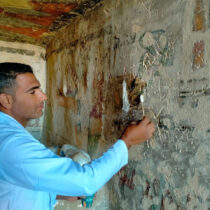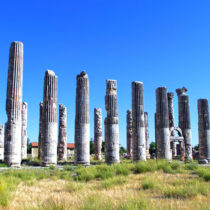The position of choreia, that is the combination of dance with ode, in the cult of Apollo in Sparta, Delos and Delphi, major centers of his worship, is examined in this article. According to Plato, Apollo was the god who donated to the humans the feeling of rhythm and harmony and the deity who, together with Dionysus and the Muses, gave to the mortals the wealth of dance and feast. Sparta was one of the most important centers of choral music in the Archaic period, as it is also testified by the choral events held during the three major Apollo’s festivals, the Gymnopaediae, the Hyacinthia and the Karneia. Choreia was a component of the Spartan education and played a significant role in the incorporation of youths to the society of adults. In Delos the status of choreia was prominent and was closely related with sacrificial rites. Furthermore, the mimic dimension in some of the most celebrated Delian choruses presents a particular interest. Finally, the dances of the Pythian Apollo seem to be related mainly with the epiphany of the god and the ritual of initiation, regardless if they were performed in Delphi or in his other Pythian sanctuaries.
Dances of Apollo. Sparta – Delos – Delphi
28 Aug 2012
by Archaeology Newsroom
- A
- A
- A


